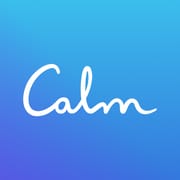In today’s fast-paced world, maintaining mental health and well-being is more important than ever. Fortunately, technology has made it easier to access resources that support mental wellness. Numerous apps are designed to help manage stress, anxiety, and overall mental health. Here, we compare some of the best apps available to enhance your mental well-being.
Headspace
Headspace is a popular app known for its focus on mindfulness and meditation. It offers a variety of guided sessions to help users reduce stress, improve focus, and sleep better.
- Guided Meditation Sessions: Headspace provides a wide range of guided meditation sessions tailored to different needs and levels of experience.
- Beginner-Friendly: Headspace is exceptionally user-friendly for beginners. The app offers step-by-step courses that teach the fundamentals of meditation and mindfulness. These courses are designed to gradually introduce new users to the practice without overwhelming them. The foundational course, called Basics, is an excellent starting point, covering the essential techniques and principles of meditation. This structured approach helps users build a solid foundation, making it easier to integrate meditation into their daily routine.
- Variety of Sessions: Beyond the basics, Headspace offers an extensive library of sessions targeting specific issues such as stress, anxiety, focus, and sleep. For example, there are dedicated courses for managing stress, improving productivity, and enhancing sleep quality. Each session is guided by experienced practitioners, ensuring that users receive expert guidance. Additionally, Headspace includes themed meditation packs that address various aspects of life, from relationships to self-esteem. This variety ensures that users can find sessions that resonate with their current needs and goals.
- Sleep and Relaxation Features: Headspace includes features aimed at improving sleep and relaxation, which are crucial for overall mental health.
- Sleepcasts and Sleep Sounds: Headspace offers a unique feature called Sleepcasts, which are audio experiences designed to help users unwind and fall asleep. These Sleepcasts combine soothing narrations with calming sounds, creating a relaxing bedtime routine. Each Sleepcast lasts about 45 minutes, allowing ample time for users to drift off to sleep naturally. Additionally, the app includes a range of sleep sounds and white noise options, such as rainfall and ocean waves. These sounds can be played in the background to create a peaceful sleep environment, promoting better sleep quality.
- Wind-Down Exercises: To help users relax before bed, Headspace offers wind-down exercises that prepare the mind and body for sleep. These exercises include gentle stretches, breathing techniques, and relaxation visualizations. By incorporating these practices into their nighttime routine, users can reduce stress and create a sense of calm before bedtime. The app also provides sleep-specific guided meditations designed to ease the transition from wakefulness to sleep. These features collectively contribute to better sleep hygiene and overall mental well-being.
Calm
Calm is another leading app in the mindfulness and meditation space, known for its visually appealing interface and a wide range of features designed to promote relaxation and mental health.
- Comprehensive Meditation Library: Calm offers an extensive library of meditations that cater to various needs and preferences.
- Daily Calm Sessions: One of Calm’s standout features is the Daily Calm, a new meditation session released every day. These sessions are designed to help users start or end their day with a moment of mindfulness. Each Daily Calm session is guided by a soothing voice and focuses on themes such as gratitude, self-compassion, and resilience. This daily practice encourages consistency and helps users cultivate a regular meditation habit. The fresh content keeps the experience engaging and relevant, providing ongoing support for mental well-being.
- Specialized Programs: Calm offers specialized meditation programs targeting specific issues such as anxiety, stress, and personal growth. For example, the 7 Days of Calm program is designed to introduce users to the basics of mindfulness, while the 21 Days of Calm program provides a more in-depth exploration of meditation practices. Additionally, Calm includes programs for specific life situations, such as mindful eating, self-esteem, and forgiveness. These programs offer structured guidance and support, helping users address their unique mental health needs.
- Sleep and Relaxation Tools: Calm excels in delivering tools for better sleep and relaxation, which are essential for maintaining mental health.
- Sleep Stories: Calm’s Sleep Stories are one of its most popular features. These are bedtime stories for adults, narrated by well-known voices such as Matthew McConaughey and Stephen Fry. The stories are designed to lull listeners into a peaceful sleep, combining soothing narration with calming background music. Each story is crafted to be engaging yet relaxing, helping users unwind and drift off to sleep effortlessly. This innovative feature makes bedtime a pleasant and calming experience, promoting better sleep quality and overall well-being.
- Calm Music and Nature Sounds: In addition to Sleep Stories, Calm offers a variety of music tracks and nature sounds designed to promote relaxation and focus. The Calm Music library includes playlists for different moods and activities, such as concentration, relaxation, and sleep. These tracks are curated to create a calming atmosphere, whether you’re working, meditating, or winding down for the night. The app also features nature sounds like rain, ocean waves, and forest ambience, which can be used to create a serene environment conducive to relaxation and mental clarity.
BetterHelp
BetterHelp is an app that provides access to professional therapy and counseling services online. It connects users with licensed therapists who can offer support for a wide range of mental health issues.
- Access to Licensed Therapists: BetterHelp offers a convenient platform for accessing professional therapy, making mental health support more accessible.
- Qualified Professionals: BetterHelp connects users with licensed, accredited, and experienced therapists who specialize in various areas of mental health. These professionals are qualified to provide therapy for issues such as depression, anxiety, stress, relationships, and more. Users can choose therapists based on their specific needs and preferences, ensuring a good match. The platform also allows for easy switching of therapists if needed, ensuring that users find the right support. This access to qualified professionals ensures that users receive high-quality, evidence-based care tailored to their individual needs.
- Flexible Communication Options: BetterHelp offers multiple communication options, including messaging, live chat, phone calls, and video sessions. This flexibility allows users to choose the mode of communication that they are most comfortable with. For instance, users can send messages to their therapists at any time and receive timely responses. Live chat and phone call options provide real-time interaction, while video sessions offer a more traditional therapy experience. This flexibility makes it easier for users to fit therapy into their schedules and preferences, enhancing the overall accessibility of mental health support.
- Privacy and Convenience: BetterHelp prioritizes user privacy and convenience, making it a practical choice for online therapy.
- Confidential and Secure: BetterHelp takes user privacy seriously, implementing robust security measures to ensure that all communications and data are confidential. The platform uses encryption and secure servers to protect user information. Additionally, users can choose to remain anonymous by using a nickname instead of their real name. This emphasis on privacy ensures that users feel safe and secure when seeking therapy online. The confidential nature of the service encourages more people to seek help, knowing that their information is protected.
- Convenient Access: BetterHelp offers the convenience of accessing therapy from anywhere with an internet connection. This is particularly beneficial for individuals who live in remote areas, have mobility issues, or have busy schedules that make it difficult to attend in-person sessions. The app is available on both mobile devices and desktops, allowing users to access therapy at their convenience. This ease of access removes many barriers to receiving mental health support, making therapy more accessible to a broader audience.
Moodfit
Moodfit is an app designed to help users track and improve their mental health and fitness. It provides tools for mood tracking, cognitive behavioral therapy (CBT) exercises, and more.
- Mood Tracking and Journaling: Moodfit offers comprehensive tools for tracking mood and practicing journaling, which are essential for self-awareness and emotional regulation.
- Mood Tracking: Moodfit allows users to track their mood over time, providing insights into patterns and triggers. Users can log their mood daily and add notes about what might have influenced it. The app then generates charts and graphs that visualize mood trends, helping users identify correlations between their activities, thoughts, and emotions. This awareness is crucial for understanding and managing mental health. By regularly tracking their mood, users can gain a better understanding of what affects their well-being and take proactive steps to improve it.
- Journaling Features: In addition to mood tracking, Moodfit includes journaling features that encourage users to reflect on their thoughts and feelings. Journaling is a therapeutic practice that can help individuals process emotions, clarify thoughts, and gain insights into their mental state. Moodfit provides prompts and guided journaling exercises to help users get started. These prompts can be tailored to specific mental health goals, such as reducing anxiety or increasing gratitude. By incorporating journaling into their routine, users can enhance their self-awareness and emotional regulation.
- CBT Exercises and Mental Health Tools: Moodfit includes various tools and exercises based on cognitive behavioral therapy (CBT) principles, designed to improve mental health and well-being.
- CBT-Based Exercises: Moodfit offers a range of CBT-based exercises that help users challenge negative thought patterns and develop healthier thinking habits. These exercises include cognitive restructuring, which involves identifying and reframing negative thoughts, and behavioral activation, which encourages users to engage in activities that boost their mood. By practicing these exercises regularly, users can develop skills to manage stress, anxiety, and depression more effectively. The app provides step-by-step guidance, making it easy for users to incorporate CBT techniques into their daily lives.
- Additional Mental Health Tools: In addition to CBT exercises, Moodfit includes various tools to support mental health, such as breathing exercises, mindfulness practices, and goal setting. Breathing exercises help users calm their mind and body, reducing stress and anxiety. Mindfulness practices promote present-moment awareness and relaxation. Goal setting allows users to set and track personal mental health goals, providing a sense of accomplishment and motivation. These tools collectively contribute to a holistic approach to mental health, addressing different aspects of well-being.
Conclusion
Taking care of your mental health and well-being is essential for leading a balanced and fulfilling life. Whether you prefer guided meditation and mindfulness with Headspace or Calm, professional therapy with BetterHelp, or comprehensive mental health tracking with Moodfit, there is an app to suit your needs. By exploring these apps and incorporating their features into your routine, you can take proactive steps towards improving your mental health and well-being.


